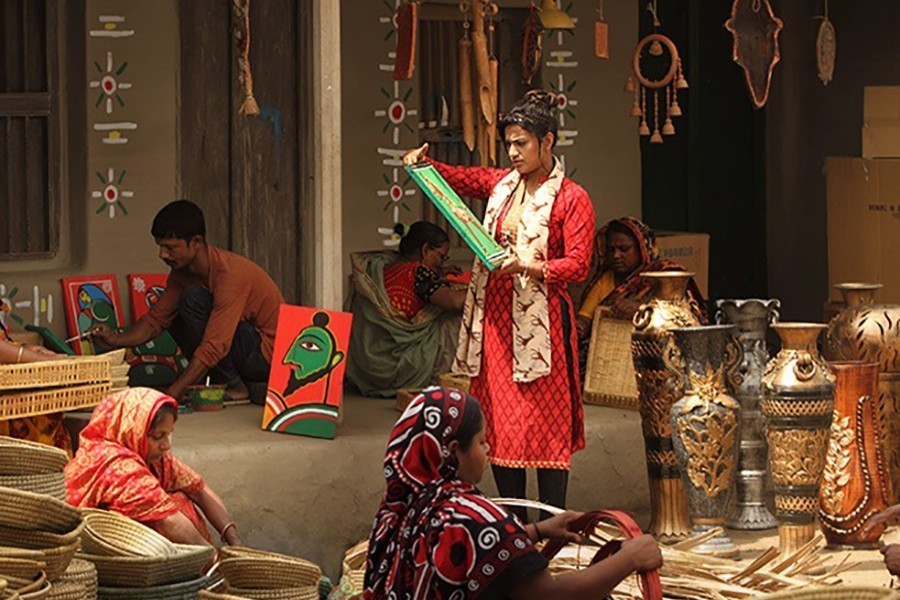

The latest findings from the Bangladesh Economic Census 2024 paint a disconcerting picture of the challenges facing cottage, micro, small, and medium enterprises (CMSMEs). According to official statistics, over one-third of economic units in Bangladesh lack access to easy loans from commercial banks and financial institutions, while a staggering 85.84 per cent are facing capital shortfalls that hinder their expansion. Moreover, the current bleak economic situation, marked by a liquidity crisis in the banking sector and a sharp rise in interest rates driven by policy rate hikes, has significantly exacerbated the challenges facing entrepreneurs of all sizes. However, the impact is particularly severe on small and medium enterprises. Amid chronic capital shortfalls and limited access to bank loans, the contribution of CMSMEs to the economy remains significantly below their potential, despite the hard work and entrepreneurial spirit of the individuals behind these ventures. The situation demands urgent attention from policymakers to ensure sustainable growth of this vital sector.
As the census reveals, one of the key barriers to CMSMEs' credit access is the informal nature of most of these ventures. Due to the absence of necessary documents, these enterprises are deemed non-bankable, making it difficult for them to secure loans from commercial banks. Even though the Bangladesh Bank has set specific targets for SME lending by banks, these guidelines are rarely followed. Banks tend to prioritise lending to larger, formal enterprises. Traditional bank borrowing models require collateral, extensive documentation and guarantees. Small and medium enterprises can hardly fulfil these requirements. As a result, these businesses cannot secure adequate bank loans and have to borrow from microcredit organisations at high interest rates, which significantly increases their cost of doing business.
To overcome these shortcomings, a multi-pronged approach is necessary. Experts have rightly recommended that the government must foster a supportive policy environment, addressing regulatory bottlenecks and promoting financial inclusion. There is an urgent need to simplify the registration process to bring CMSMEs into the formal sector. Furthermore, banks and financial institutions should adopt a more inclusive lending model by developing specialised SME financing programmes with flexible collateral requirements. Additionally, the introduction of digital financial solutions and alternative credit assessment mechanisms could enable small enterprises to demonstrate creditworthiness without the burden of traditional documentation barriers. Overall, the banks must move away from conventional lending practices that rely heavily on transaction history and cumbersome documentation. Instead, they should assess a venture's creditworthiness by evaluating its cash flow, returns, and market potential - both locally and internationally.
The central bank must take a proactive role in SME financing, not only by setting lending targets for banks but also by enforcing strict oversight to ensure compliance. Simply setting targets without effective monitoring will not benefit cash-strapped SMEs. The SME refinancing scheme should be implemented diligently to incentivise lending to this sector. Failure to act on these pressing issues will dent the entrepreneurial spirit of a vast number of individuals across the country. By ensuring easier access to credit and right policy support for CMSMEs, the country can create a more inclusive economic landscape where entrepreneurial spirit can thrive, job opportunities expand and long-term development goals are realised. A vibrant CMSMEs sector is vital for driving economic growth, reducing poverty, and fostering inclusive development.


 For all latest news, follow The Financial Express Google News channel.
For all latest news, follow The Financial Express Google News channel.